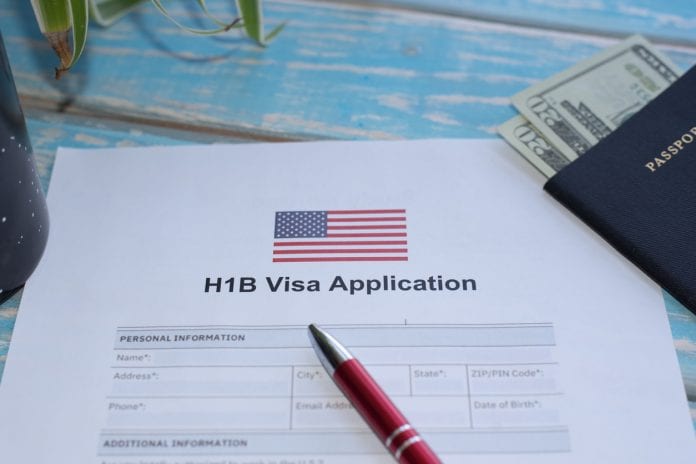The new rules proposed will change the number of visas issued every year and address the abuse of the H-1B program by big tech giants in India and the US.
With less than a month to go for the 2020 US Presidential elections, the government issued two new visa rules. These rules will make it harder for the US and Indian based companies to hire employees on H-1B non-immigrant visas.
The newly announced interim final rule to strengthen the US visa programme will come into effect within 60 days of their addition in the Federal Register, considered as the official journal of the country’s government.
Policies announced by US agencies such as US Citizenship and Immigration Services (USCIS) are kept on a 60 day notice period to consult stakeholders before passing proposed changes.
For the latest announcement on the H-1B visa, policy changes by USCIS will move with the usual 60 days and a notice period to ensure employing H-1B workers, to lessen the worsening economic crisis triggered by the pandemic.
As the COVID pushed countries into a serious economic crisis, the USCIS cited the same reason to justify the newly rolled rules. They referred it as a way to reduce the pandemic’s impact on the economy and help domestic workers to find more opportunities amid a huge job loss the country is facing.
New H-1B rules proposed
The Department of Homeland and Security (DHS) which plays a role in securing the US from possible threats, said that the H-1B visa program had caused damage to US workers by crossing the mandate it was launched for. The department now wants to bring an unbiased approach in the selection process. It has announced changes that will ensure only qualified beneficiaries applied for the program will be accepted.
Over the week, the DHS will announce new specifications that will narrow down the main definition of specialty occupation of the H-1B visa program. This will make it harder for companies to prove that employees of a particular skill are not available in domestic US workers.
The second change proposed plans to end how companies try to offer falsework to imaginary workers just to fulfill their quota of the visa program. In the past, government agencies accused Indian and US-based companies to have given an H-1B visa just on paper to avoid some part of taxes while not employing domestic workers in those vacant positions.
Impact on Indian workers
In total, 85,000 H-1B work permits are issued by the US administration, of which 65,000 are for people with specialty occupations. Each year Indian companies and employees corner majority share in the issued work permits.
According to April 2020, the USCIS has received more than 2.5 lakh H-1B visa applications, of which 1.84 lakh or 67 percent of the total applicants are Indians. This shows the importance of the visa program among Indian employees.
The newly proposed idea to narrow down the definition of what would be considered as a specialty occupation and will cut down the number of H-1B visas issued every year. The new change will impact Indian IT companies who hire H-1B workers in great numbers.
Indian giants such as TCS, Infosys, Wipro, and HCL have said in the past that they have reduced the number of hiring on H-1B visas to a large extent. Reduction in the number of visas means these companies have to spend more money to hire local talent or pay more to present H-1B employees.

